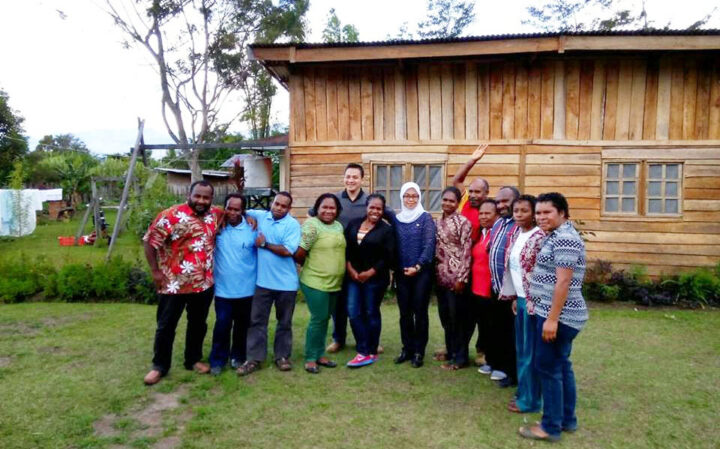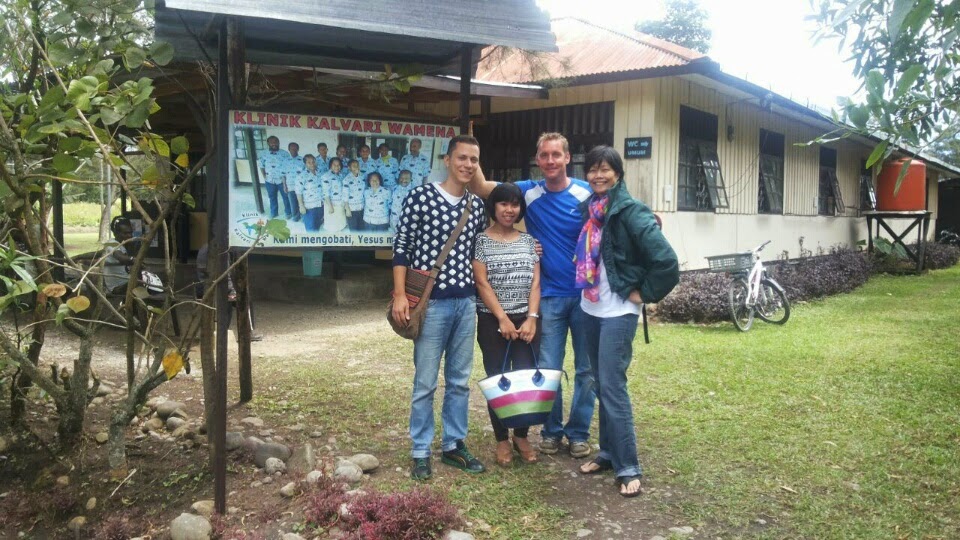 Indigenous-run Klinik Kalvari is located in the town of Wamena in the central highlands district of Jayawijaya. It is a private general health care clinic providing quality and friendly care to mostly indigenous Papuans.The clinics main focuses are HIV and AIDS, STIs, tuberculosis and malaria. Kalvari clinic is affiliated with GIDI (Gereja Injili di Indonesia) and has been operating for eight years.
Indigenous-run Klinik Kalvari is located in the town of Wamena in the central highlands district of Jayawijaya. It is a private general health care clinic providing quality and friendly care to mostly indigenous Papuans.The clinics main focuses are HIV and AIDS, STIs, tuberculosis and malaria. Kalvari clinic is affiliated with GIDI (Gereja Injili di Indonesia) and has been operating for eight years.
The clinic building is a one-storied bungalow located in the outskirts of town surrounded by gardens and small plots of farmed land. Patients gather and wait outside in front of the clinic under a roofed veranda. A sign board with the name of the clinic, a photograph of its staff and Kalvari’s motto “Kami mengobati, Yesus menyembuhkan” greets patients and visitors at the entrance. The clinic’s interior is clean, tidy and well-kept and decorated in a simple and caring manner. All the rooms of the clinic are arranged around a central patio, which guarantees good natural lighting and ventilation.
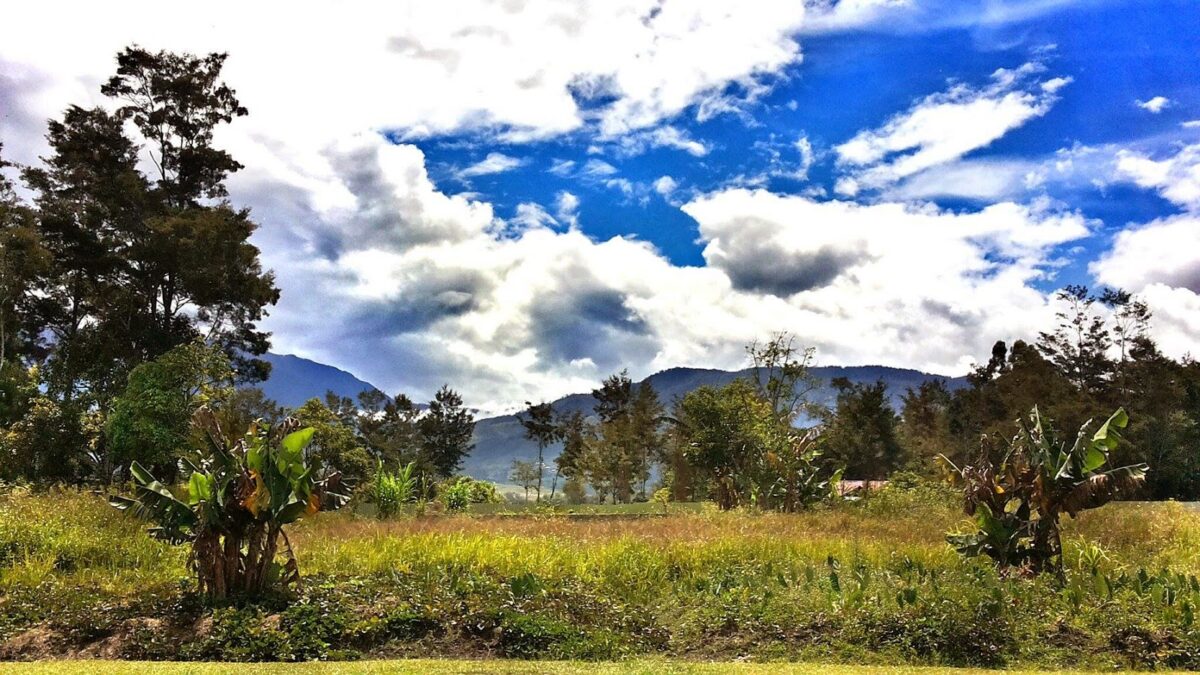 The staffs at the clinic are all indigenous Papuans, who can communicate with the patients in various local languages and dialects, which is important in a region where many people are more fluent and comfortable in their local languages. The team is highly motivated and committed to help and serve the community as they feel personally called for this work.
The staffs at the clinic are all indigenous Papuans, who can communicate with the patients in various local languages and dialects, which is important in a region where many people are more fluent and comfortable in their local languages. The team is highly motivated and committed to help and serve the community as they feel personally called for this work.
The clinic is serving a large number of mostly indigenous Papuan patients from Wamena, neighboring valleys and far-flung villages and hamlets across the Jayawijaya District. Many of the patients coming to the clinic have been walking for days to reach the clinic, as health services outside of Wamena (puskesmas) are rare, unequipped and staffs are often absent.
This has led to a situation where services in Wamena, including Kalvari, can barely keep up with the large number of people in need of services and treatment. Another challenge for the clinic related to HIV and AIDS is the high number of loss of follow-up, with only about 20 to 30% of patients living outside of Wamena returning to the clinic for treatment on an ongoing basis.
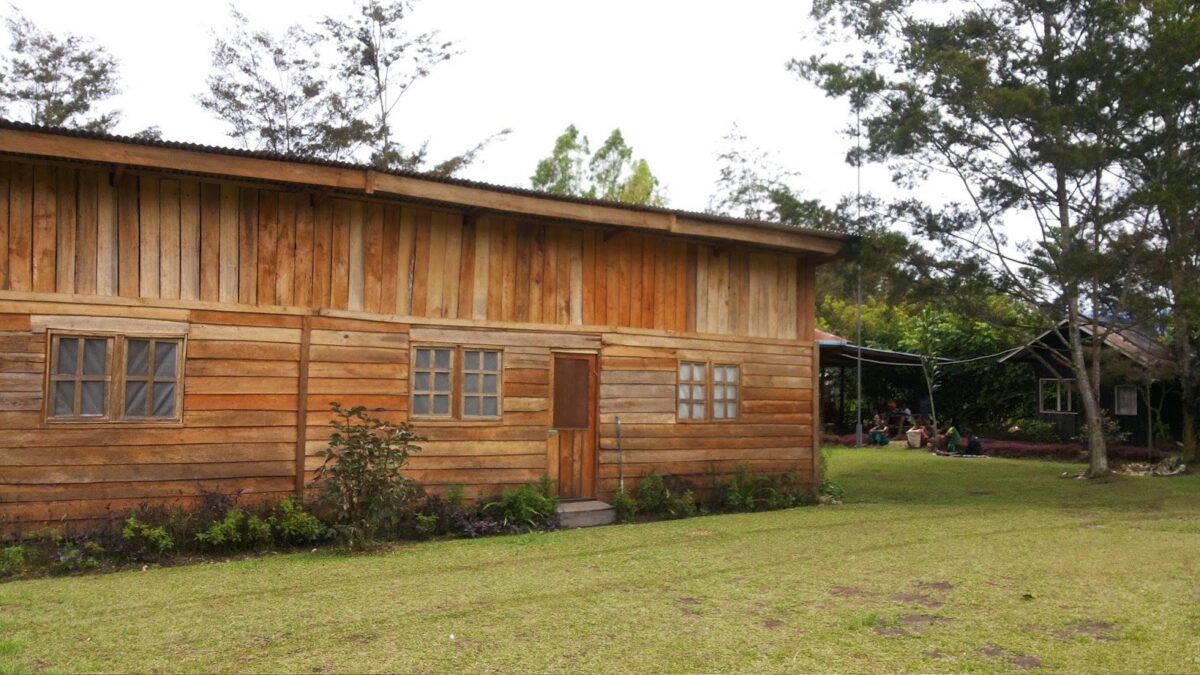 Kalvari clinic runs its operation without a full time doctor, with well trained and competent nurses taking care of most things. Once a week a doctor from the RSUD Wamena sees patients at the clinic and conducts quality control on his own initiative. Kalvari thus is a good example of a health service in a region with limited human resources and underdeveloped infrastructure operating successfully since many years without a full time doctor, relying on a strong team of nurses and external weekly quality control from a doctor.
Kalvari clinic runs its operation without a full time doctor, with well trained and competent nurses taking care of most things. Once a week a doctor from the RSUD Wamena sees patients at the clinic and conducts quality control on his own initiative. Kalvari thus is a good example of a health service in a region with limited human resources and underdeveloped infrastructure operating successfully since many years without a full time doctor, relying on a strong team of nurses and external weekly quality control from a doctor.
Kalvari clinic is also a satellite provider for ARVs (from RSUD Wamena), which makes Kalvari one of the very few private clinics in Indonesia providing ART. Testing reagents and some medications (program) are supplied by the Dinkes. Serious cases are referred to RSUD Wamena but most cases, including treatment of TB and other opportunistic infections, as well as malaria, are handled at the clinic.
Kalvari clinic also stands out in that it has successfully made use of local expertise and resources, indigenous knowledge and language, and modern western biomedicine. This is still a rarity in Papua but it is showing very promising results.
With the help on an anthropologist the team at the clinic recently came up with a “fence model”, which they use as a means to explain the concept of HIV and AIDS and its treatment (or the consequences of no treatment) to newly infected persons. The model shows a miniature traditional farmyard with a number of huts surrounded by a protective fence. The fence symbolizes a person’s immune system (or CD4 cells). HIV perforates the fence, by which pigs (representing opportunistic infections) can enter the yard and destroy the cultivated gardens. Taking antibiotics or other medication (for opportunistic infections) helps chase the pigs out of the gardens and yard and then, ART helps rebuild the fence. The “fence model” thus is as a good example of how an approach rooted in local culture and symbolism allows the team to serve and engage with patients in a way valuing and respecting.
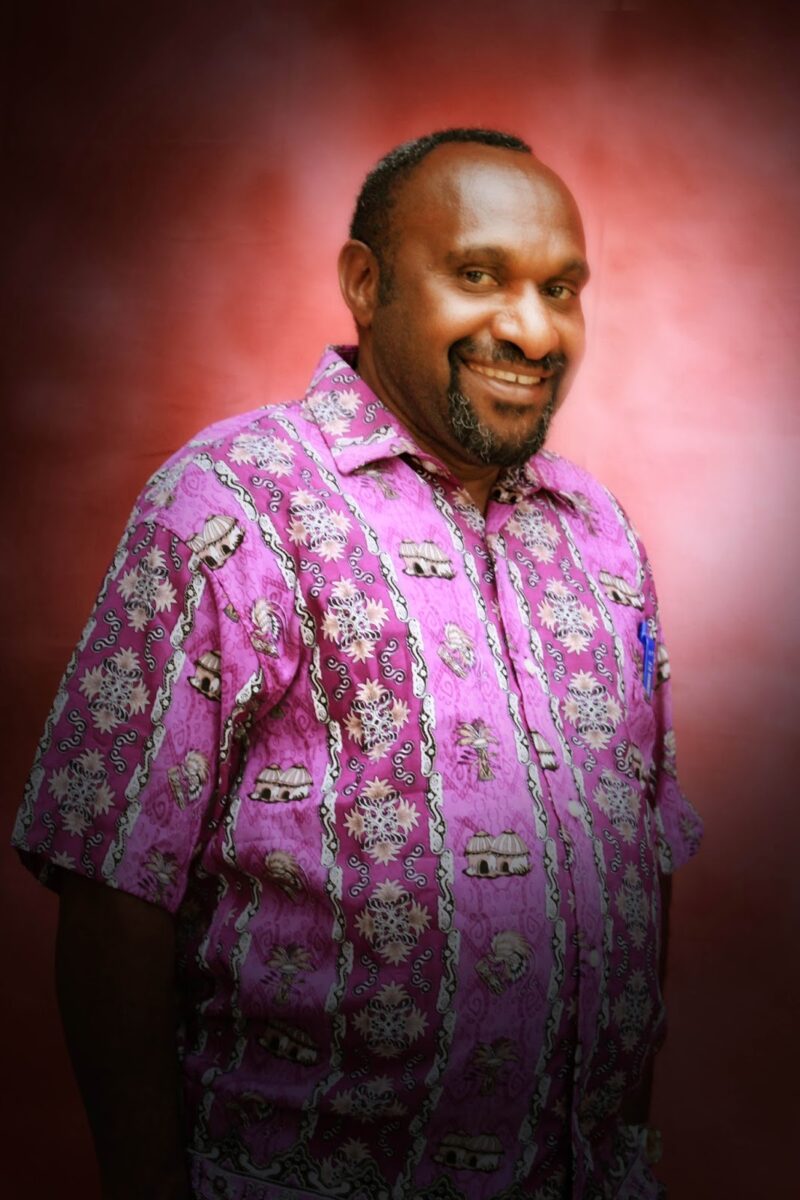
Financially, the clinic currently has to fend for itself, with patient revenues roughly covering a thirdof operational costs and the reminder being supported by GIDI and the government (through reagents, medication and doctor). The current and relatively new (since 1 year) director of Kalvari clinic is Bpk. Man Logo, who shows great commitment to serve the local community. He has a missionary background and has undergone a number of trainings on HIV/AIDS and STIs by the Dinkes, CHAI and USAID.
Since 2011 the clinic has been supported by Marcel, a Dutch consultant/coach, and his wife, who is a nurse. Both speak fluent Indonesian and are in the process of learning some of the local languages. Marcel is being very passionate about the clinic and has been of great help in numerous ways. He has been the backbone of the clinic for the last few years and pushed for the approaches and solutions rooted in local culture. As such, Marcel will play a crucial role in the development of the clinic in the near future.
One of Kalvari team’s big dreams for the future is to open their own hospital in Wamena, which would allow them to provide an even larger number of patients with comprehensive health services. Moreover, the team hopes that future partners will be more sensitive towards and make use of local knowedge, expertise and networks in order to make a real difference to the clinic and its staff and the communities served.
Angsamerah in partnership with SUMII Project’s USAID provided Technical Assistances to the clinic to be able financially sustainable in providing their mission toward high quality and friendly services with affordable prices. The three months project had been completed and without doubt the three months assistances is not yet adequate to fullfill this ultimate goal.
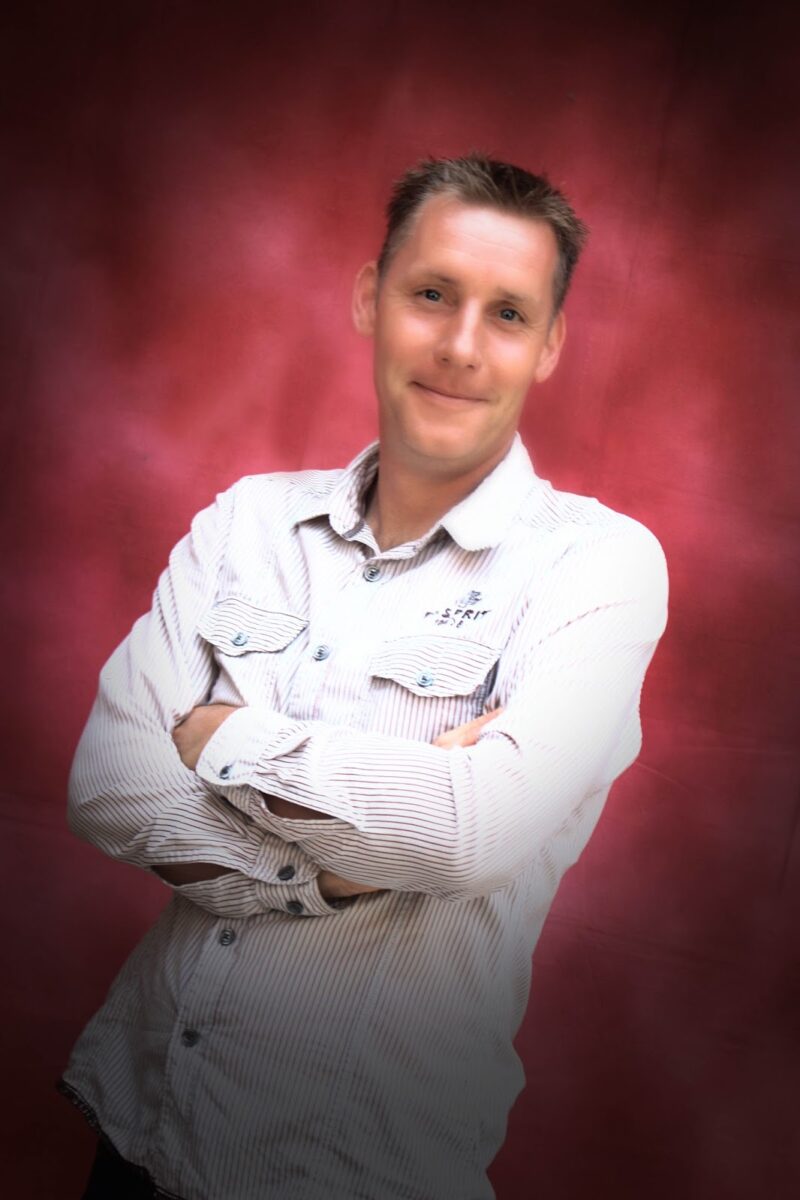
Angsamerah believes their dream is feasible to be achieved, and would like to invite anyone to join to support their dreams and transfom it into a success story. There are various type of collaborations and contributions that can be developed that may benefit mutually to any parties. If you are interested or have questions about their work and dreams, you can contact them at kalvariklinik@gmail.com
Angsamerah rhymes for social entrepreneurship in healthcare services.
